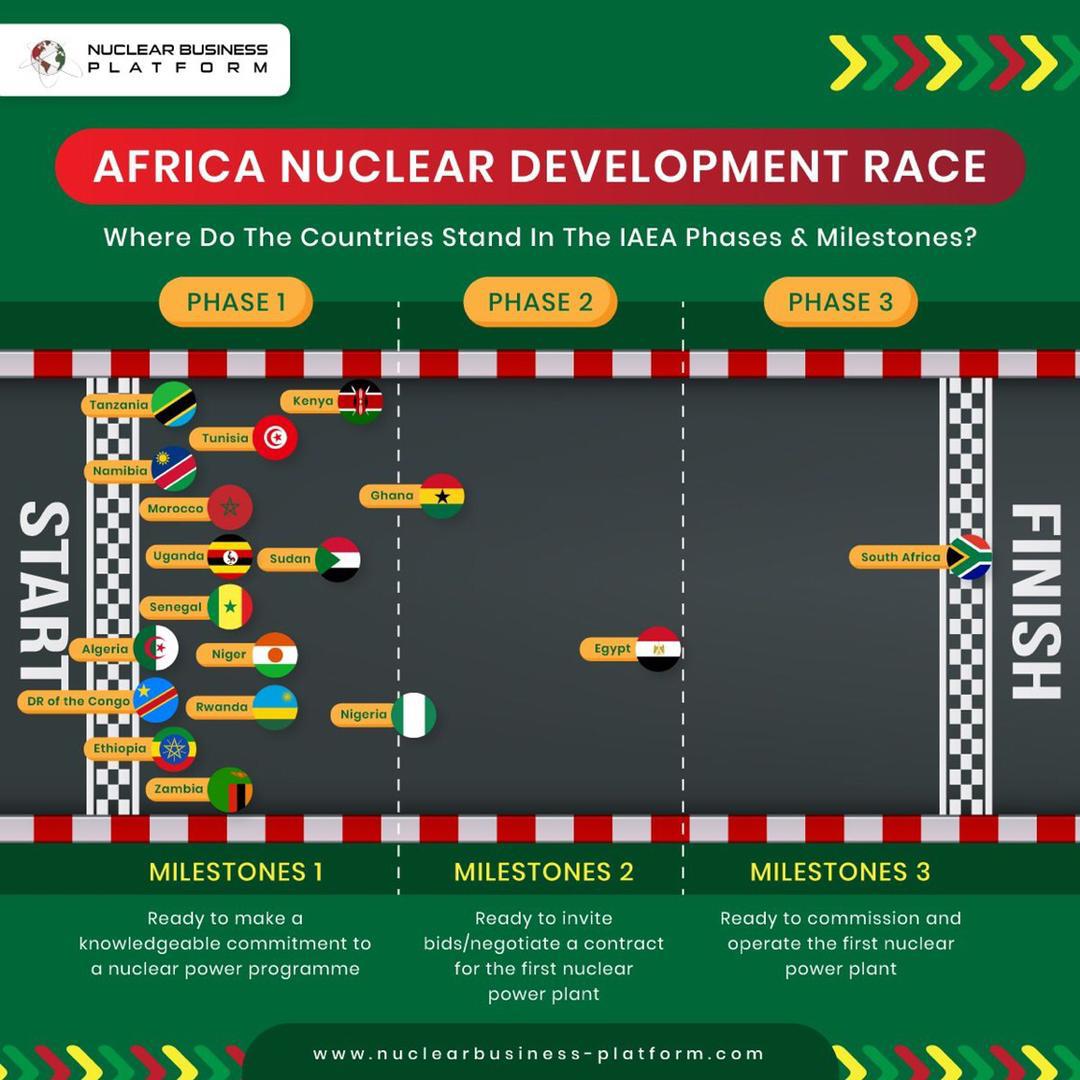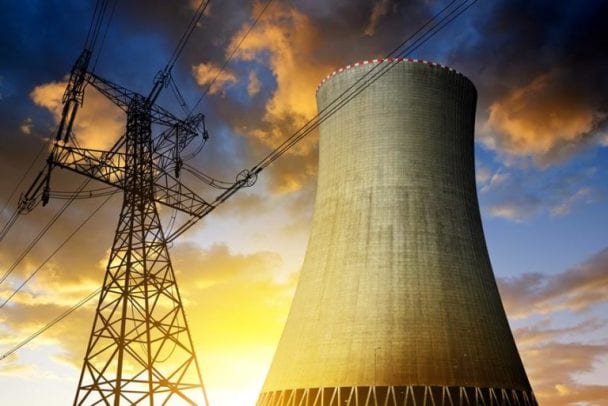Ghana is ready to invite bids towards the negotiation of a contract to set up the first nuclear power plant, according to the International Atomic Energy Agency (IAEA).
The country’s current position on the Africa Nuclear Development Race -- number three in Africa -- falls within Milestone 2, which is the penultimate milestone to commissioning and operating a nuclear plant in Ghana.
This places her behind only Egypt and South Africa, and ahead of Nigeria, in the latest Africa Nuclear Development Race rankings.

The IAEA Milestone Approach
IAEA’s Milestones Approach splits the activities necessary to establish the infrastructure for a nuclear power programme into three progressive phases of development, with the duration of each dependent on the degree of commitment and resources applied in the country.
The completion of each phase is marked by a specific “Milestone” at which progress can be assessed and a decision can be made about the readiness to move on to the next phase.
The three phases in developing the infrastructure necessary to support a nuclear power programme are:
Phase 1: Considerations before a decision to launch a nuclear power programme is taken; a Pre-Feasibility Study will help a country establish a strong national position and answer the key question: why nuclear? This process begins early in Phase 1 after nuclear power is included as an option in the energy strategy.
Phase 2: Preparatory work for the contracting and construction of a nuclear power plant after a policy decision has been taken; in this phase, key organizations, as well as the legal and regulatory frameworks, are established.
Phase 3: Activities to contract, licence and construct the first nuclear power plant are undertaken.
Ghana's nuclear programme
The Ghana Nuclear Power Programme, which started in 2012, seeks to ensure the smooth implementation of the Ghana Nuclear Power Road Map towards the commissioning of the first Nuclear Power Plant in Ghana by 2030 to support baseload power demand and provide cheap power for industrialisation.
The decision to revive interest in nuclear energy – and its associated technologies – were on the back of a report of a Presidential Committee in 2007, which recommended the incorporation of nuclear power into the energy mix for Ghana.
Ghana Nuclear Power Planning Organisation was subsequently established to steer the implementation of a nuclear energy programme to address all the issues associated with nuclear planning and this is under coordination by the Nuclear Power Unit of the Ministry of Energy.
Nuclear power project to generate $1.2b for local industries
At the 26th United Nations Climate Change Conference in Glasgow Scotland, Ghana's Energy Minister, Dr Matthew Opoku Prempeh in a panel discussion said in response to a question on nuclear energy that Ghana’s energy mix has significant contributions from renewable energy sources, particularly hydro, which forms the baseload energy in the country.
According to Dr Prempeh, due to the growth in demand and the incidence of climate change, the large hydro dams have become unreliable and cannot meet baseload demand in the near future.
He said nuclear energy was the only clean baseload power that will meet the energy source criteria for the country, given that Ghana is mindful of her commitment to the Paris Agreement, not to contribute to the increase in carbon footprint and her determination to provide baseload power.
The Manhyia South Member of Parliament also intimated that a nuclear power plant built in any part of the continent should be considered as a replacement for a possible fossil fuel power plant, as this is a step towards global decarbonisation.
He called for a comprehensive programme with funding to be initiated for nascent countries to enable them to build capacity to address all the 19 infrastructure issues required by the IAEA for such countries.





